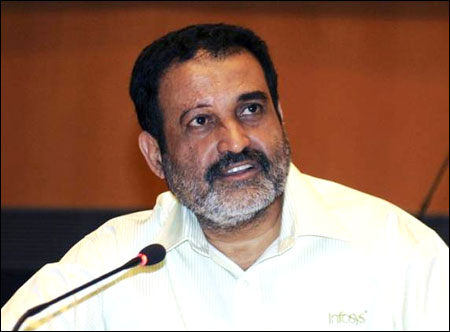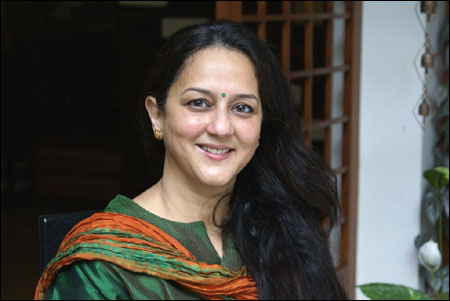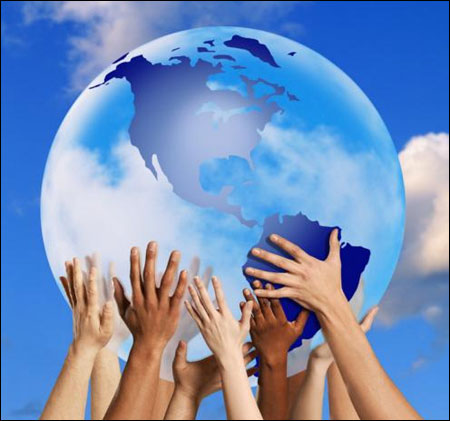 | « Back to article | Print this article |
Nation first - GIVE back to the community
65 years of Independence and a vibrant democracy but yet we are staring at a nation facing social unrest, inequity, unfairness, a lack of equal opportunity, good education, and more. Are we too self centered? Not doing enough for the greater common good? Are the crutches of corruption, short term greed, and crony capitalism diverting India's rich resources to a few when the nation deserves it equally? ETNOW's Senior Editor Shaili Chopra speaks to corporate citizens and explores if a sustainable model of corporate social responsibility is the way forward for India's growth. Do we now need to focus hard on making India a more equitable nation and reduce the gap between the rich and the poor?
Debate but no action?
Do we as Indians have a narrow understanding of what CSR really is? Perhaps over the years there has been more debate than clarity. Although traditionally the Indian people have been giving away their money, talent and their time, it's all been a bit self-driven, sometimes unstructured and often nebulous.We get lost in the thin lines between CSR and personal philanthropy. But now after 65 years of independence and plenty of economic progress, we have displayed wealth creation but only in the hands of a few.
We haven't invested in society enough given that society is a vital shareholder in our growth process. We have given reasons for social unrest to fester. Is it time to kill the debate and produce some action?
Click on NEXT for more...
Powered by
Nation first - GIVE back to the community
Wealth creation should be fair
Social responsibility also has its core in how India's resources are distributed. Clearly growth is a lot about access to resources and opportunity.Are only a few using our resources to get an unfair advantage over others?
Former board member of Infosys Mohandas Pai in an interview shared with me that while corporations are meant mainly for business, and to generate wealth for stakeholders, the people who have benefited a great deal from these resources and policy must owe a responsibility to people and society that has allowed them to flourish in the first place.
Click on NEXT for more...
Powered by
Nation first - GIVE back to the community
Force or invisible hand?
Almost everyone believes that any effort to make environmental justice and governance or social responsibility mandatory will fall flat on its face.There is one view that we need to begin within the corporate fence where owners and people have a higher say and a bigger control. This is within a company compound through its employees and behavior.
Is India Inc doing enough to look within its so called 'best practices' and ensuring their supply chains meet environment needs, improve the life and working conditions of their labour force?
Rohini Nilekani, chairperson of Arghyam says, inside the fence, companies should do enough to ensure the environment footprint is better and that by doing good, they can do a lot of social impact. Something that will then put us a step ahead.
Click on NEXT for more...
Powered by
Nation first - GIVE back to the community
Compassionate capitalism?
We all need to develop a social conscience. We are seeing a crisis today with no closure to global and domestic economic challenges.Hence it's even more important to have what people refer to as compassionate capitalism. It's clearly no longer about funds or funding. We seem to be flush with money but don't know how best to use it.
We have seen strong growth across India Inc's entrepreneurial effort, one that built people and prosperity across classes.
But this could be now changing. Rohini Nilekani points out that people are losing trust in what Indian business can be and ought to be.
"Can we create better social impact so the growth story can continue in the right way?" Swati Piramal of Piramal Life Sciences admits India Inc can really do a much more. "We don't have the culture of giving as we see in the west."
Click on NEXT for more...
Powered by
Nation first - GIVE back to the community
Does the onus lie on billionaires?
So the question is - does the onus of social responsibility lie on billionaires? It's probably accepted that display of wealth through weddings, corporate jets and such show off is causing resentment among people.
We live in difficult times. And these aren't the best for the haves to pop the bubbly and bring out the wares.
"Rich of the country have let us down in a big way. Either they behave or let's have the government step in or put an inheritance tax on billionaires who are not willing to participate," says Mohandas Pai.
Click on NEXT for more...
Powered by
Nation first - GIVE back to the community
CSR versus personal giving
An important thing is really to ensure we distinguish between corporate social responsibility and personal philanthropy.
While it's true today only the wealthy can afford to turn philanthropists it's also true that corporations owe their decisions to their shareholders and thus need a structure within which they operate.
CSR today needs a specific set of people who have a vision of how best to impact the society; evaluate efforts and models that have been put to work to check their effectiveness.
As India 'turns' 65, we are all attempting to think and act for the future. It's time social good becomes a priority. Here's how and why.
One, greed is not an option any more. People are losing patience with it.Two, corporate social responsibility can be more effective if it comes at the start of a company's life and business cycle than as an afterthought or section in an annual report.
Three, India's demographic dividend isn't just about being a billion-people market but also a billion people who can bring a social change and produce equity in livelihood. So let's engage them as they are not only interested in a more equitable society, they are also the future of this nation.
Finally, to borrow from what Rohini said, "There is nothing called long term; it's all to be done in the short term." Now. Nation First.
Powered by





